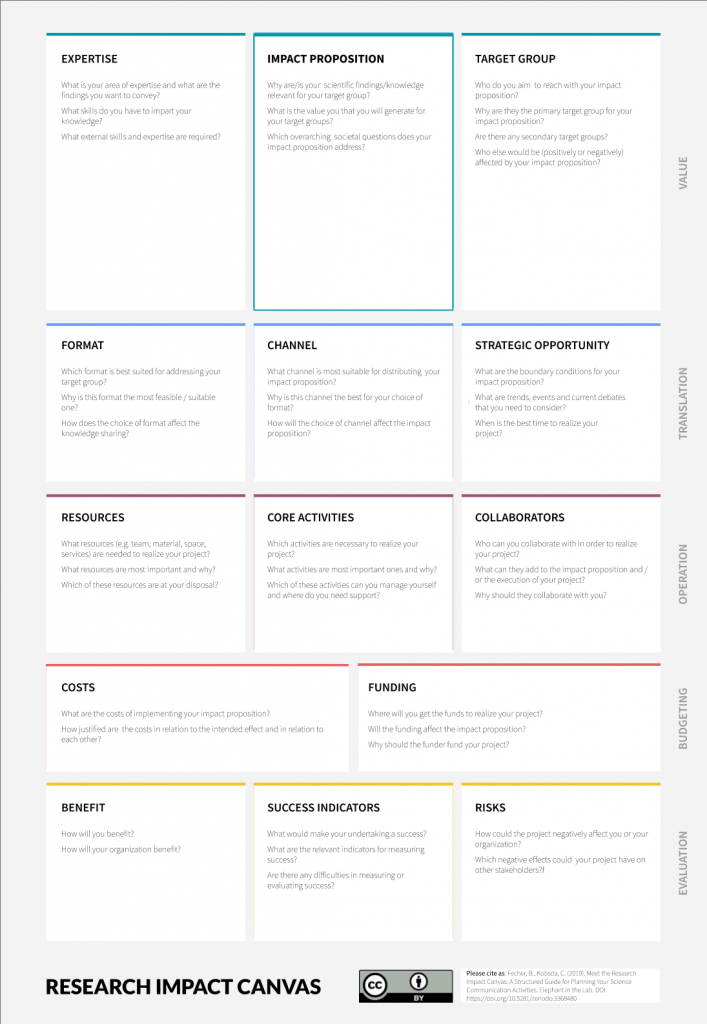Research Impact Canvas: New tool for impactful science communication
With the help of the newly developed science communication tool Research Impact Canvas, HIIG trains PhD students and postdocs in knowledge transfer during its three day long international Impact School.
In modern knowledge societies, researchers are not only expected to produce high quality and replicable knowledge, but also to make it applicable for the respective stakeholders in society. To actively support young researchers in the transfer of their research results, the Alexander von Humboldt Institute for Internet and Society (HIIG) is hosting the Impact School for the third time in a row with the motto “Know how to reach whom, why and when.” For the first time, the training focuses on the so-called Research Impact Canvas, a strategic instrument for planning science communication developed by Dr. Benedikt Fecher, Programme Director at the HIIG, and Christian Kobsda, political advisor to the Leibniz Association and associated researcher at the HIIG.
Using the method, the participants will be shown how to develop a concrete impact strategy for their own research findings. Benedikt Fecher explains: “The researchers have not only the possibility to ask themselves creative questions, for example how they could translate their scientific findings for certain target groups, but also questions of operational feasibility, evaluation and funding. Since science communication is still not sufficiently taught at universities and scientific institutions, we would like to offer a space to reflect on the transfer of one’s own research for new target groups and to draw practical lessons for future projects. We are particularly pleased that so many researchers have applied for the Impact School and that we will be welcoming participants from all over the world next week”.
In three intensive days, from 30 September to 2 October 2019, practitioners and researchers at the Impact School at HIIG will pass on their knowledge in order to bring the topic more into the focus of the participants. Among others, Verena Kremling (University of Freiburg), Annika Duut van Goor (AESIS Network) and Rebecca Winkels (Wissenschaft im Dialog) will speak as experts. On the second evening of the training, at the public event “Translating Science: What’s good, what’s not” Prof. Dr. Gert G. Wagner (Chairman of the Social Advisory Council of the Federal Government), Dr. Gregor Hagedorn (Museum für Naturkunde, Scientists for future) and Elena Erdmann (ZEIT) will talk about the quality of science communication and how exactly science transfer can work. The event is open to the public and will take place at 6.30 pm (admission: 6 pm) at HIIG, Französische Straße 9, 10117 Berlin.
The Impact School is organised by the Alexander von Humboldt Institute for Internet and Society (HIIG) and the Impact Distillery (mStats DS GmbH) in collaboration with the Leibniz Research Alliance Open Science.
Florian Lüdke, florian.luedke@hiig.de
Dr. Benedikt Fecher, benedikt.fecher@hiig.de

caption
© copyright
